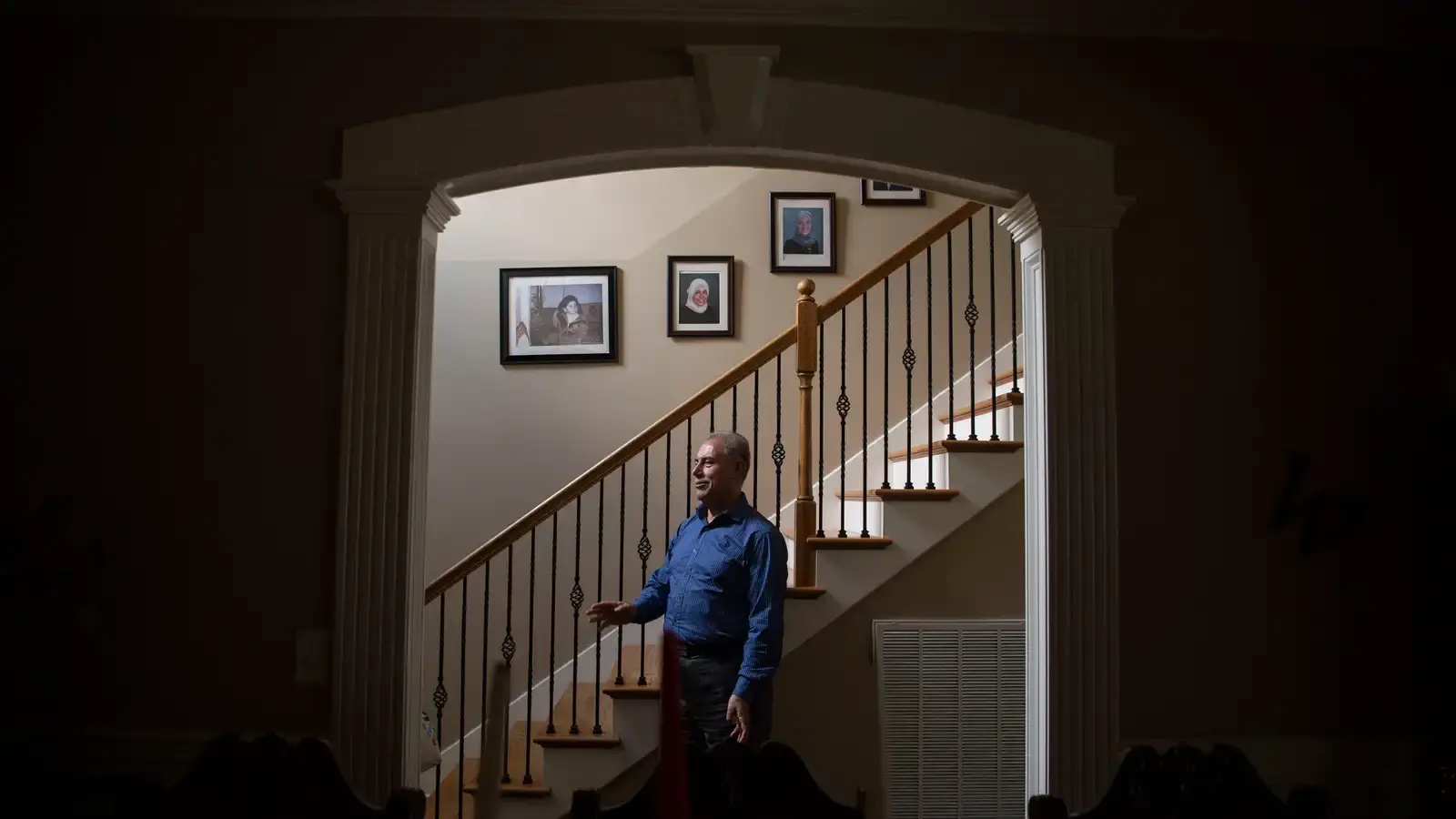
In 1988, Saddam Hussein's regime used chemical weapons to kill thousands of Kurdish residents. Now, three decades later, a civil trial in Iraq against European companies is bringing some Kurds hope for closure.
Nawzad Hawrami remembers going back to his house in Halabja in Northern Iraq to get blankets after Saddam Hussein’s chemical weapons attack there killed about 5,000 people in March 1988.
“I saw a lot of birds dead in front of the house,” he said. “I saw people dead, injured, blind, shouting.”
Hawrami hid in a basement, packed tightly against hundreds of others. He then fled through the mountains to Iran, where he stayed for a few months before moving to Sulaymaniyah, a city in the Kurdish region of Iraq about 50 miles from Halabja.
By 1992, people had started moving back to Halabja, but even today residents still suffer from respiratory issues and other ongoing effects of the chemicals.
Now, 4,811 of those residents are suing German, French and Dutch chemical companies that sold chemicals to Saddam Hussein’s regime, as well as members of the Iraqi government.
From 1987 through 1988, at the end of the Iran-Iraq War, Saddam Hussein’s government destroyed some 2,000 villages and killed 50,000 to 100,000 Kurdish people, according to a report from Human Rights Watch.
The attack on Halabja was one of the worst.
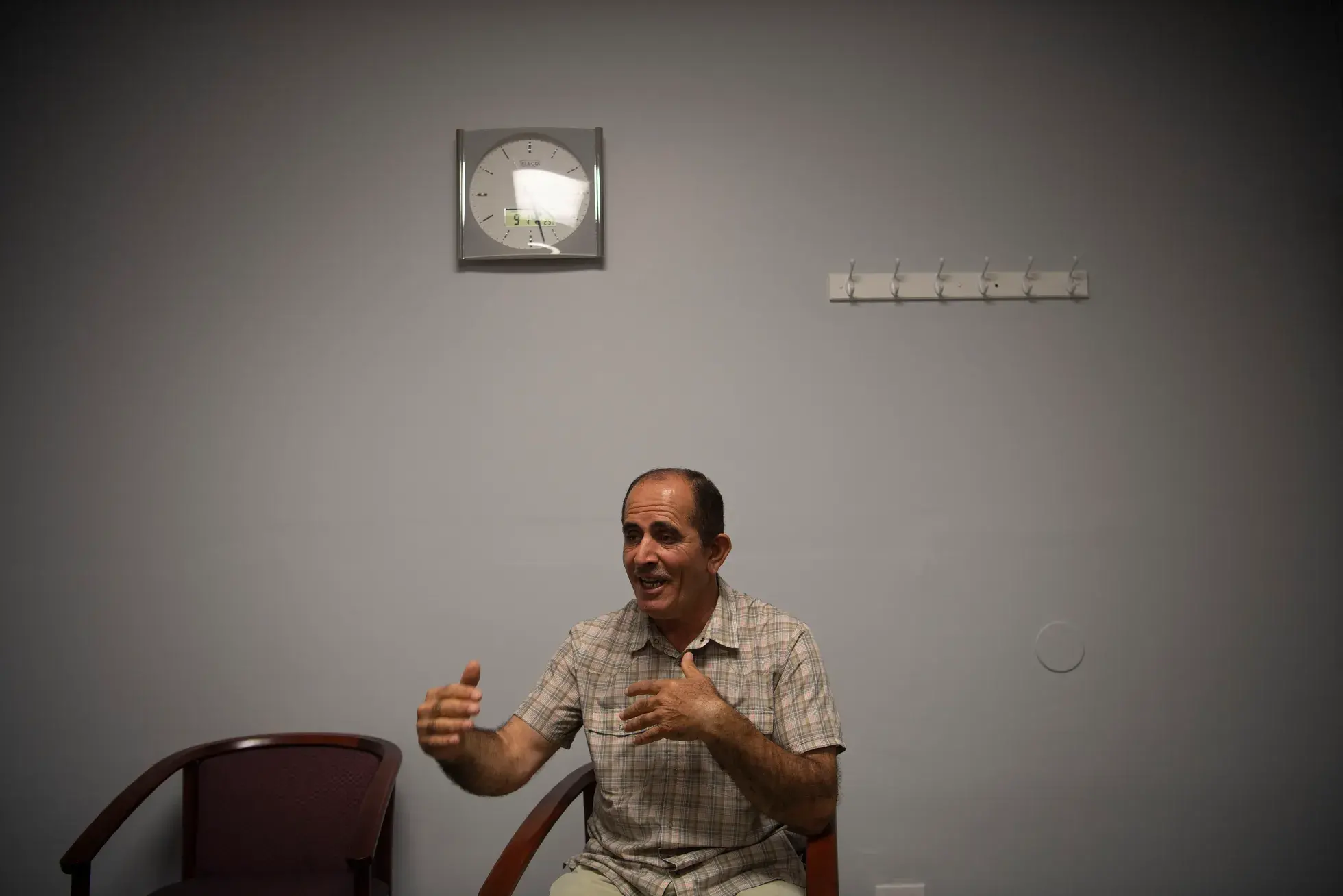
Led by Hussein’s cousin, defense minister and intelligence chief Ali Hassan abd al-Majid al-Tikriti, known as “Chemical Ali,” Iraqi forces dropped chemical weapons—mustard gas and the nerve agent Sarin—on the town.
Though Hussein and Majid were eventually convicted of crimes against humanity and hanged, Kurds across Iraq have not received adequate medical care or compensation. Halabja attack survivors suffer ongoing vision issues, have trouble breathing, have dealt with infertility and birth defects and more.
Chicago-based law firm MM-Law is now suing seven European companies and other key personnel on behalf of survivors and in the hopes of receiving compensation and a medical facility.
The companies and their directors and managers knowingly conspired with the Hussein regime to build chemical weapons factories and provide other technical expertise that allowed the regime to use the weapons against civilians, the lawsuit contends.
The trial is ongoing in Iraqi Kurdistan and is set to wrap up in November. So far, though, the defendants have not shown up.
“These companies have gotten away with murder with no consequences,” said Gabriel Mairone, founder of MM-Law and the lawyer working on this case.
'We are the victims. That’s why we are here'
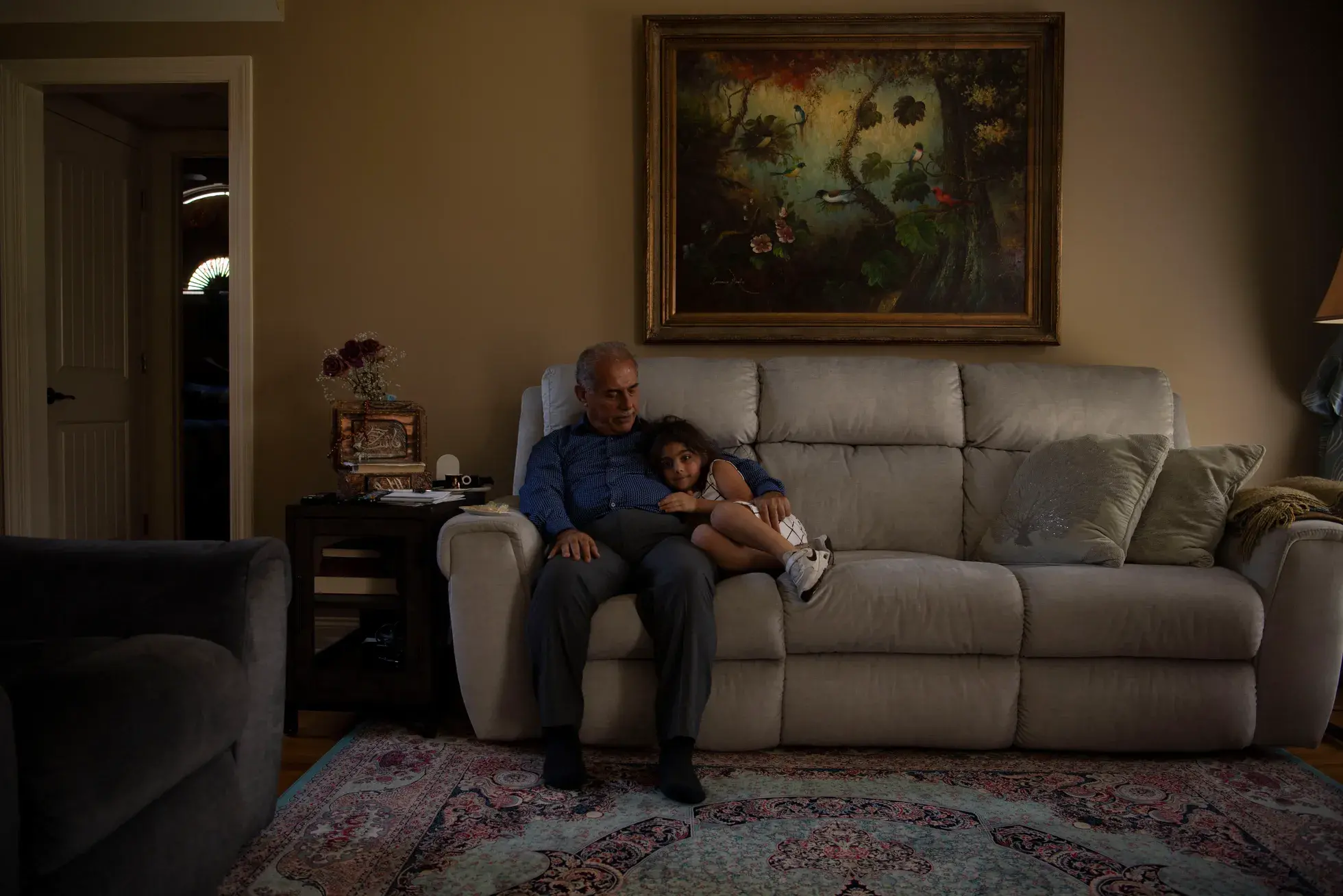
Hawrami, who now runs the Salahadeen Center in Nashville, left Iraq in 1996 as part of Operation Pacific Haven, along with about 2,000 other Kurdish evacuees and their families who were associated with the U.S. government's humanitarian efforts in Northern Iraq.
Evacuees fleeing Hussein’s regime were brought to Andersen Air Force Base in Guam, and eventually resettled around the U.S., many in Nashville, which now has the largest Kurdish population in the country.
Yasin Kokoye, a veterinarian in Nashville who was working with an American NGO in Iraq, was one of those evacuated.
“Saddam said anyone who worked with Americans was going to be hung, so we left in 48 hours,” he said.
No moment passes without grieving what happened in Halabja. It is my city. There are moments we all cry.
Yasin Kokoye, a Veterinarian in Nashville who fled Iraq after the attacks.
Kokoye was not in Halabja on the day of the attack, but his father was, and was unconscious for 17 days afterward. Sipping Turkish coffee in his home in Nashville 34 years later, Kokoye and his wife said they still think about the attacks every day.
“No moment passes without grieving what happened in Halabja. It is my city. There are moments we all cry,” he said. “We are the victims. That’s why we are here. Why else should we leave our country, our lives, our relatives?”
The ongoing case has brought some hope.
“We are not hopeless of humanity’s judgment,” Kokoye said.
Aras Akram still lives in Halabja and lost his entire family—all 26 members—in the attacks when he was 20-years-old. He has advocated on behalf of survivors across Iraq and in the U.S.
“This is history being made,” he said in an interview from Halabja last November. “If it succeeds, it will cast fear in the hearts of Saddam supporters.”
Others are more skeptical. For more than three decades the people of Halabja have been fighting for justice, asking for better medical care, trying to rebuild their city, and urging the international community to label what happened to them as genocide. They have shared their stories with countless journalists, and many are tired.
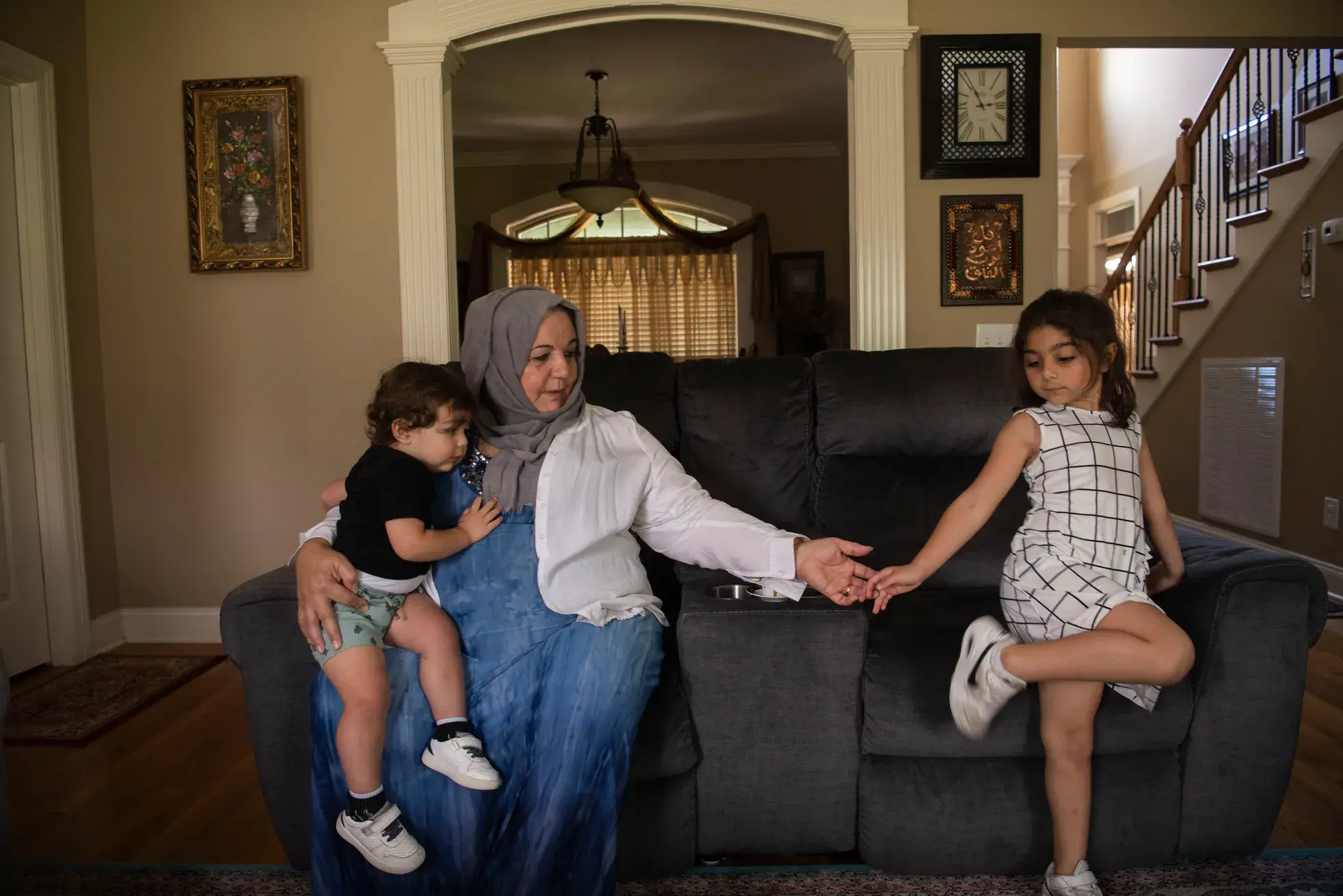
Mahmoud Fatah al Hamad, who lives in Halabja, is now 74 but said the pain of the attacks, when he lost his wife and three of his children, will never fade. He doesn’t have much faith in the trial.
“I believe it’s nothing but a political stunt,” he said during an interview at his home in Halabja earlier this year. “It’s completely non practical. It won’t lead anywhere. There’s nothing else to be said. I’ve done hundreds of interviews, but nothing has changed.”
'Let's push this case forward'
That exhaustion is felt among the Kurdish community in Nashville as well.
“Let’s push this case forward,” Hawrami said. “But […] it’s been 34 years. There’s been a lot of promises for the people of Halabja, but nothing has happened.”
Baram Haurami, who also worked for an American NGO in Iraq and was evacuated to Guam in 1996, said he has little faith in the Iraqi government.
“What is going on in Iraq right now? They still do not want to admit that Kurdish people have the right to live in Iraq,” he said. “I’m a U.S. citizen. This is my first country now. I never felt one day I’m an Iraqi citizen the way I felt I’m an American citizen.”
Still, he wants some sort of justice.
“Even if we are not injured physically, we are all injured emotionally,” Haurami said. “Every person in Halabja for thousands of years will stay with the people of Halabja. And I don't think justice will fix that emotion, but we would like to see justice.”
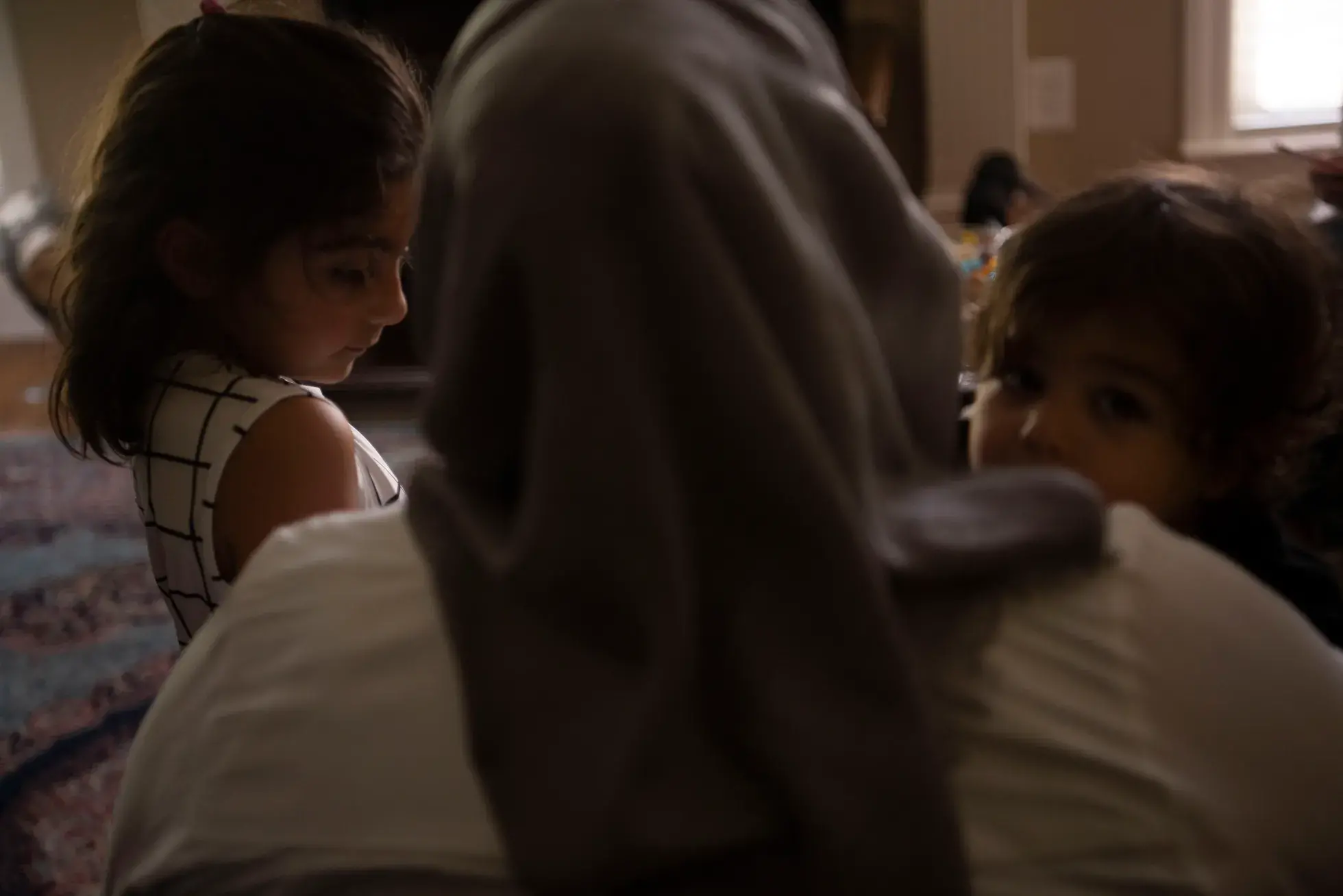
Mairone said cases like this take time.
An Iraqi court cannot force a foreign company to pay damages. So even if Mairone wins in Sulaymaniyah, the city where the trial is underway, to receive monetary compensation, the case would need to be brought again in each of the defendants’ countries. That includes Germany, for companies TUI A.G., Water Engineering Trading GmbH, Karl Kolb; France, for Groupe Protec and De Dietrich Process Systems; The Netherlands, for Melspring International; and Luxembourg, to prosecute LGeneral Mediterranean Holding. The lawsuit also names individuals at these companies, a Dutch businessman who lived in Baghdad, and members of the Hussein government.
Even if we are not injured physically, we are all injured emotionally.
Baram Huarami, who worked for an American NGO in Iraq and was evacuated to Guam in 1996
Mairone has said he will “move to enforce such judgments by all legal means.”
Plaintiffs in Halabja were torn on whether a symbolic victory was enough, or whether compensation was the main goal.
Sozan Hamdaw Zorab, for example, suffers from ongoing chemical effects to her vision, and needs eye surgery she cannot afford. Hawker Saber, who still lives in Halabja, needs an oxygen tank to breathe. Thousands of people’s homes were destroyed and never properly rebuilt, something compensation could help.
“I hope to be reimbursed along with hundreds of other victims,” Saber said. “I want to be able to go abroad for treatment. It is no way to live, connected to a machine.”
For those in Nashville, who are not listed as plaintiffs, the victory is more symbolic.
“To win the case anywhere would be a symbol for us,” Haurami said. “Because we have proved to the planet how big the genocide was. I still live with those memories that I have from before the chemicals. How many family members I lost. Close, best friends, lost in that genocide. I don’t think you can price this with money. I don’t think you can fix those hearts with money.”
Almost everyone interviewed, both in Iraq and Nashville, expressed frustration that the international community is not doing more.
“Consider the fact that the sheer size of the attacks, and the number of people dead is not getting the recognition from the international community it deserves,” Hawkar said. “We’re still having problem with it not being called a genocide.”
The U.S. State Department did belatedly recognize Saddam Hussein’s campaign against the Kurds as a genocide in 1995. Iraq recognized it in 2010. But other countries, such as France, have not.
“In the U.S., no one even knows about Halabja,” said Hawrami, a common refrain repeated by many. Iraqi Kurds in Halabja and Nashville said the case should be brought in an international court, partly because they don’t trust Iraq’s court system, and partly because they feel the European companies would feel more pressure elsewhere.
But the case Mairone is working on is a civil case. “No international court hears civil cases or has jurisdiction to hold corporations liable for war crimes, genocide, or crimes against humanity,” a representative of MM-Law said in an email. “In addition, Iraq never entered into the Treaty of Rome establishing the ICC, and the crimes were committed in Iraq.”
One thing everyone agrees on is that an attack like this should never happen again.
“Halabja is important for all of us because it is related to humankind,” Hawrami said. “We want to prevent it anywhere else.”
Kokoye agreed and urged the international community to look at Halabja as a lesson.
“We need a better society that wouldn’t let this type of criminals happen in the future,” he said.









